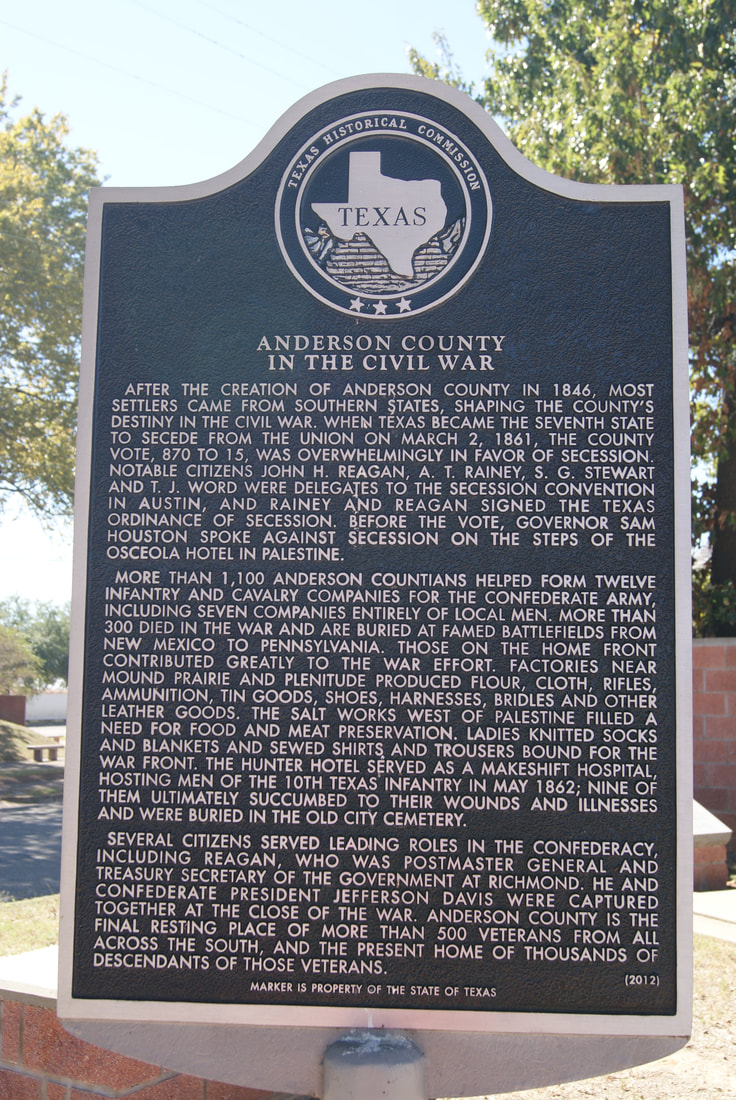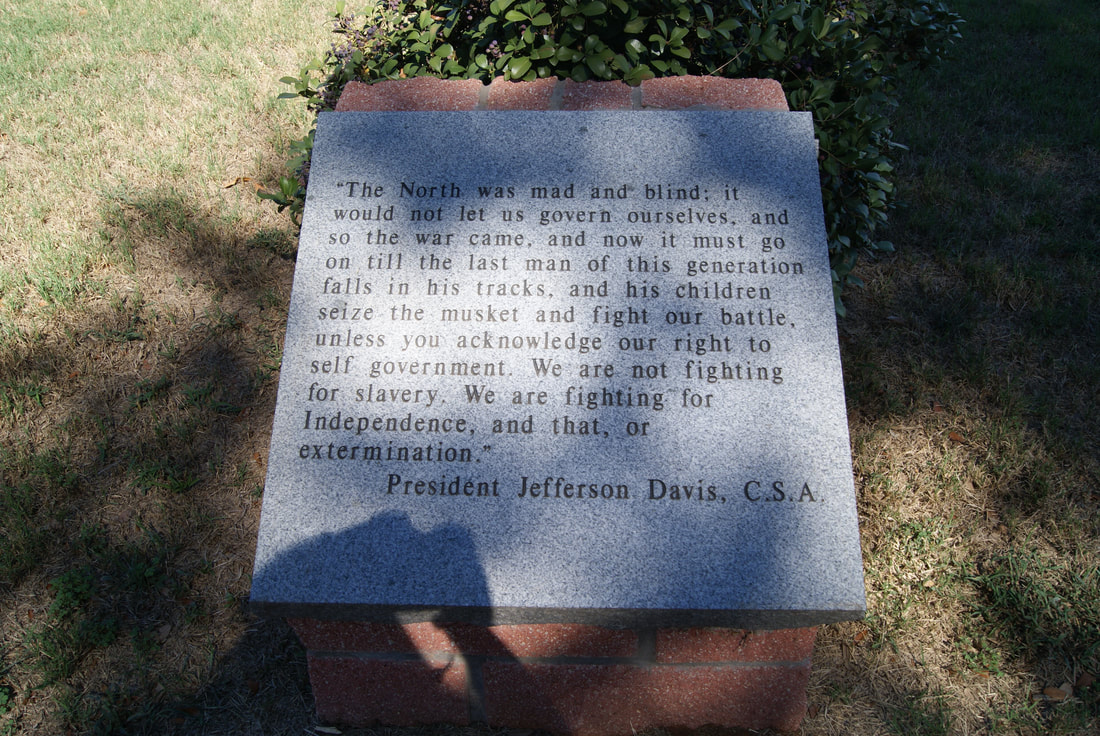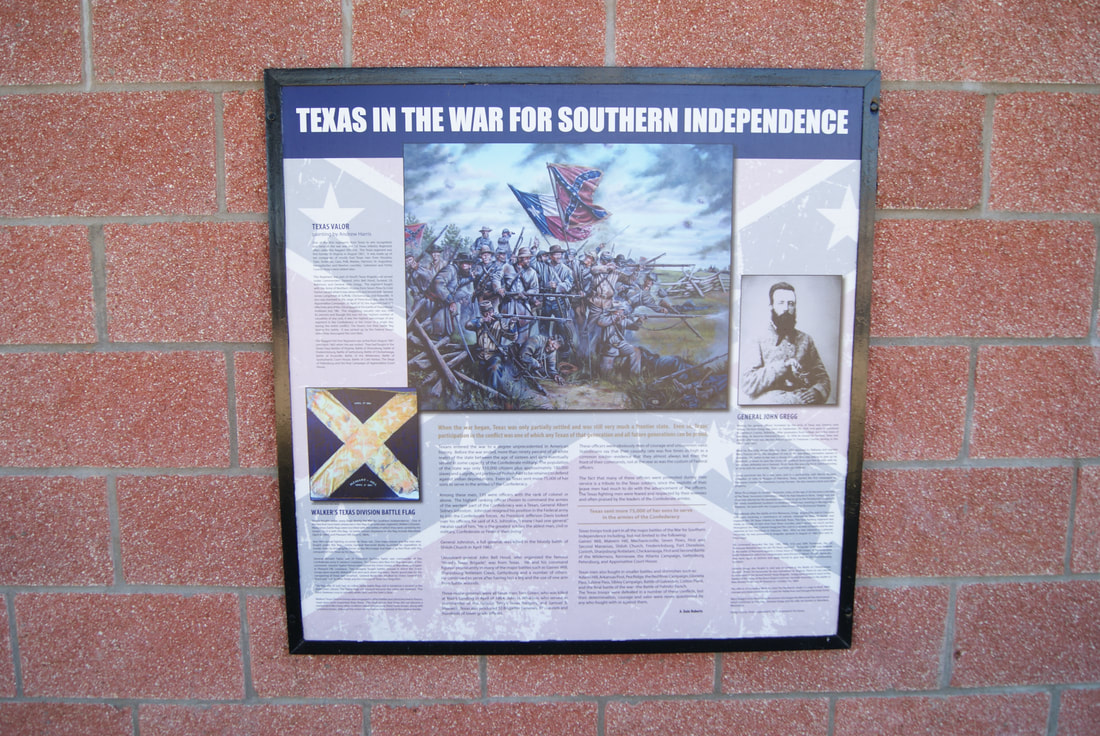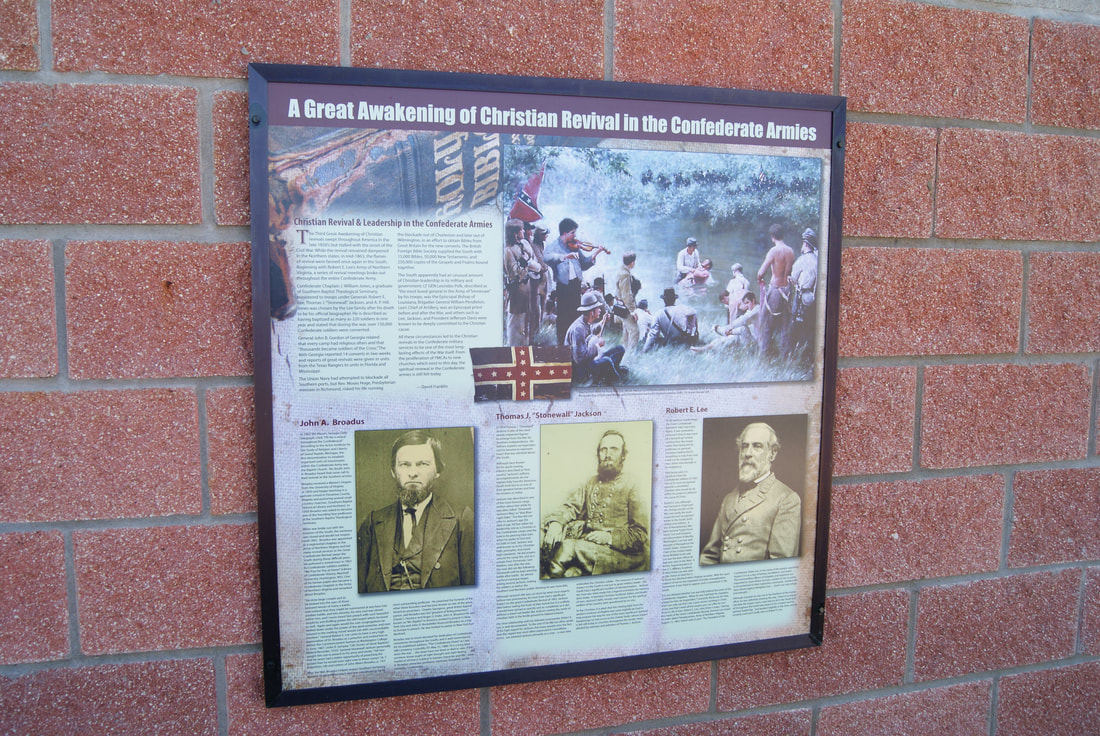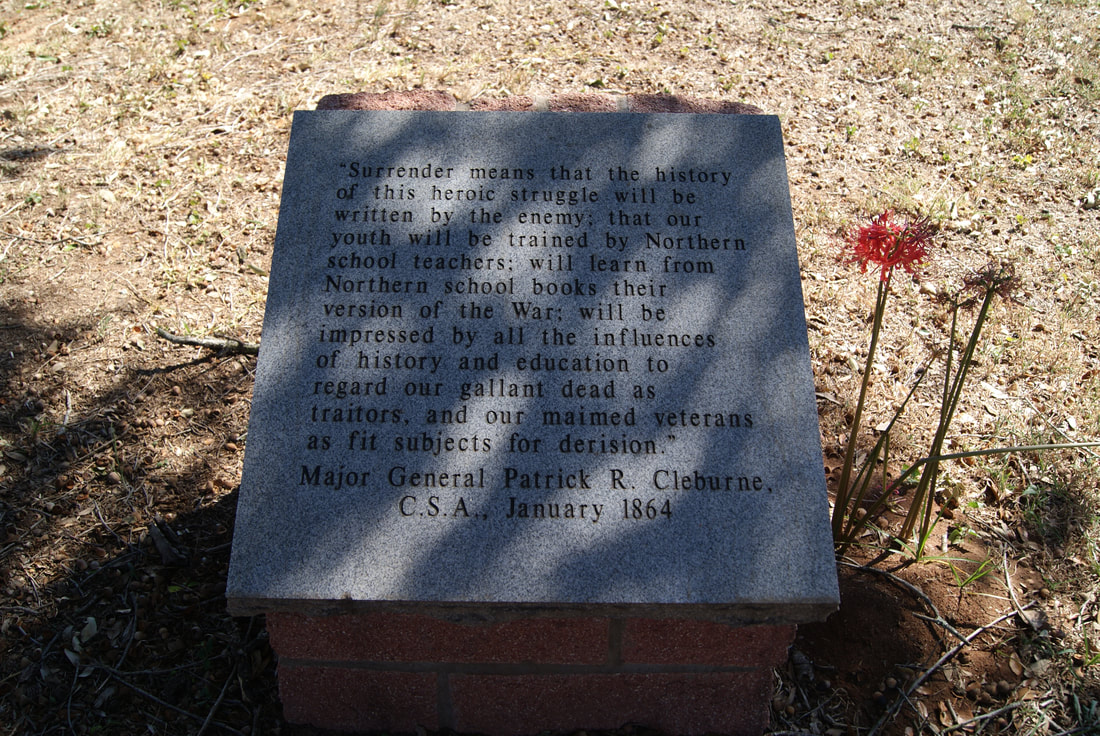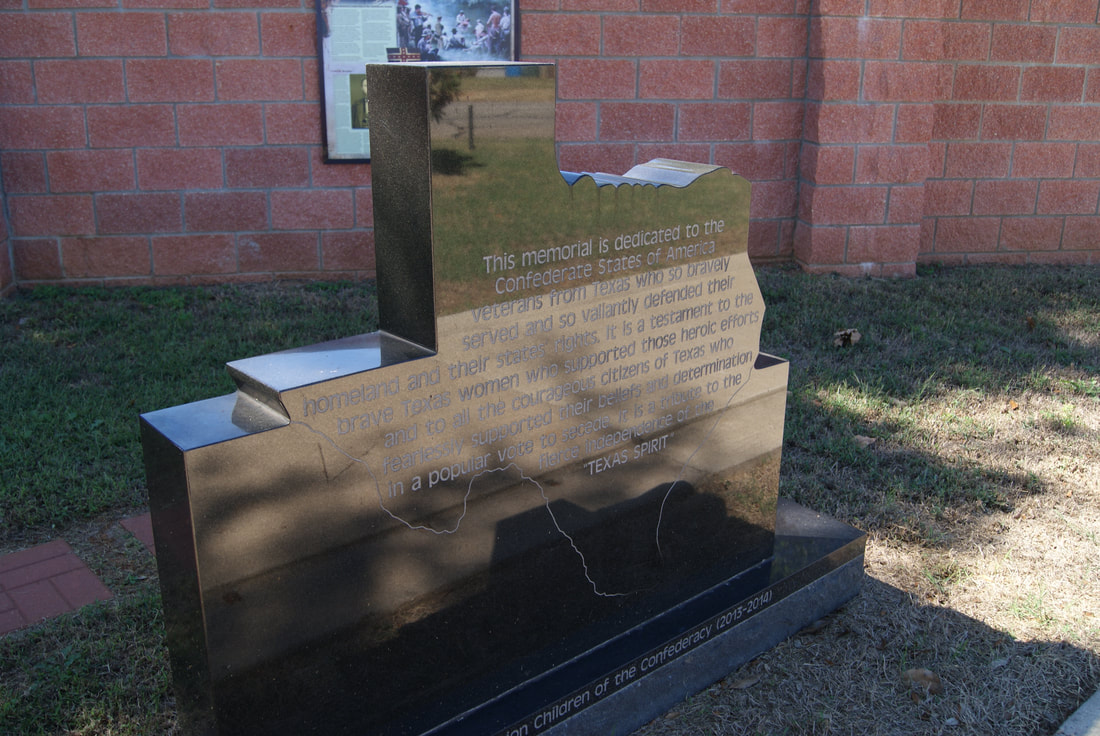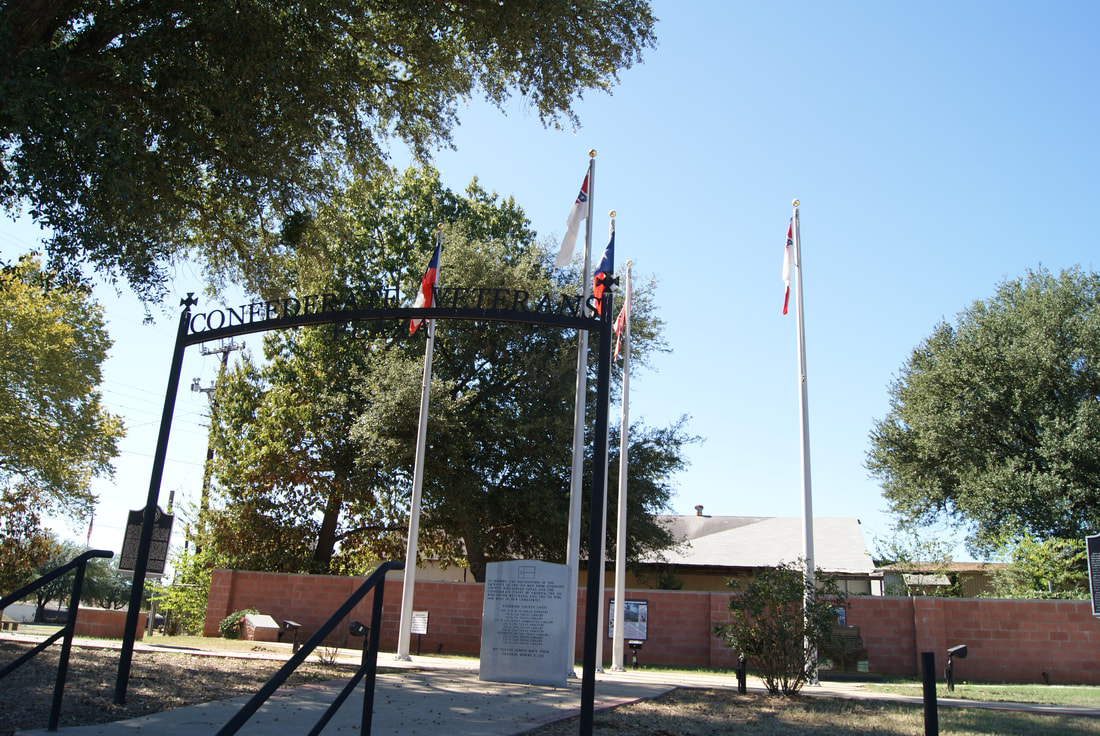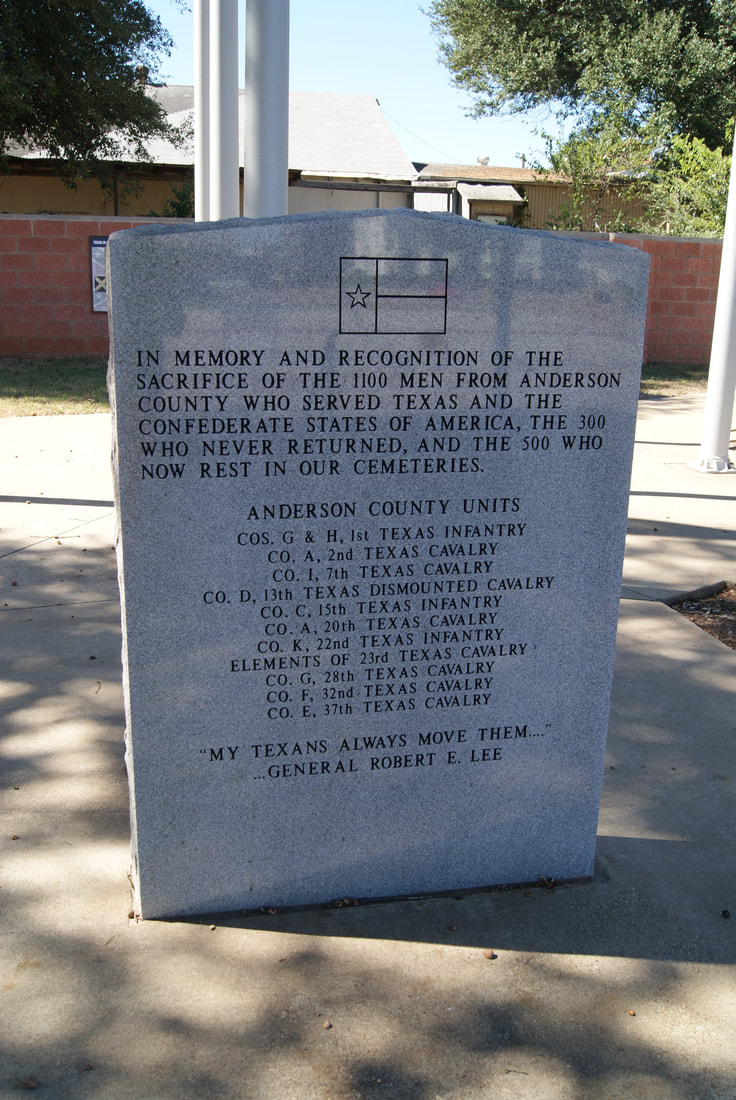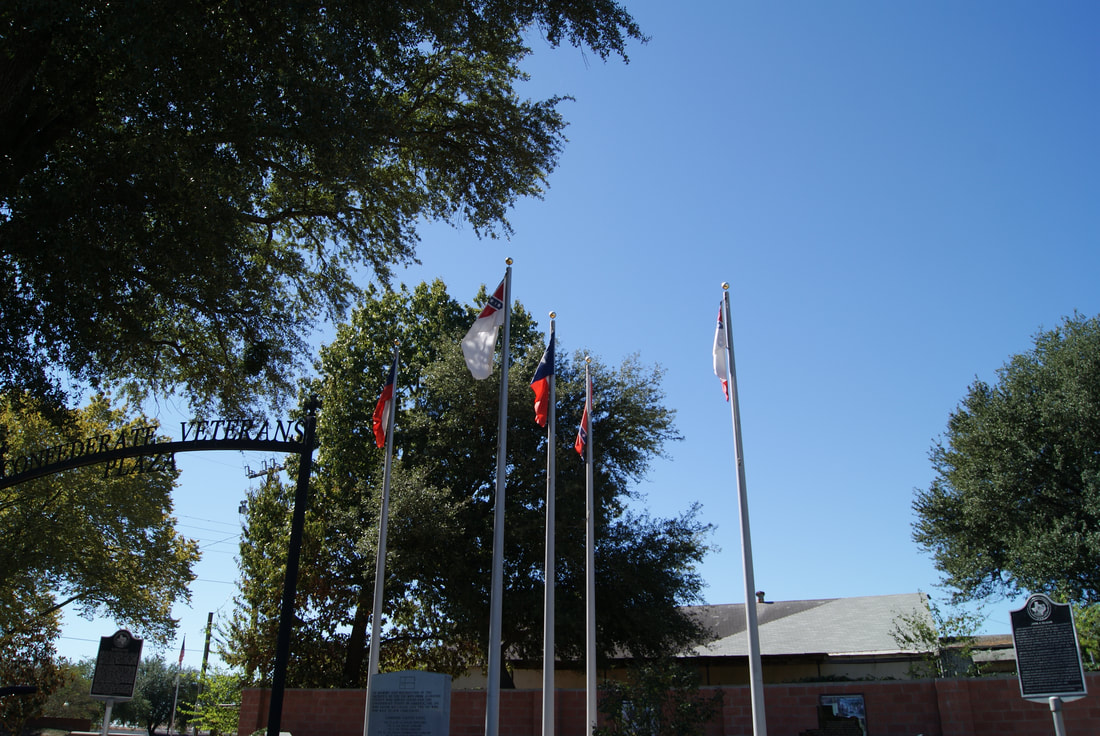Anderson County in the Civil War
|
A
N D E R S O N C O U N T Y |
Marker No: 17255
Aluminum 27x 42 Subject Marker
Geographic: 31.762331,-95.636589
Location: 600 West Oak Street, Palestine
|
Marker Text: After the creation of Anderson county in 1846, most settlers came from southern states, shaping the county’s destiny in the Civil War. When Texas became the seventh state to secede from the union on March 2, 1861, the county vote, 870 to 15, was overwhelmingly in favor of secession. Notable citizens John H. Reagan, A. T. Rainey, S. G. Stewart and T. J. Word were delegates to the secession convention in Austin, and Rainey and Reagan signed the Texas ordinance of secession. Before the vote, governor Sam Houston spoke against secession on the steps of the Osceola hotel in Palestine.
More than 1,100 Anderson Countians helped form twelve infantry and cavalry companies for the confederate army, including seven companies entirely of local men. More than 300 died in the war and are buried at famed battlefields from New Mexico to Pennsylvania. Those on the home front contributed greatly to the war effort. Factories near mound prairie and plenitude produced flour, cloth, rifles, ammunition, tin goods, shoes, harnesses, bridles, and other leather goods. The salt works west of Palestine filled a need for food and meat preservation. Ladies knitted socks and blankets and sewed shirts and trousers bound for the war front. The hunter hotel served as a makeshift hospital, hosting men of the 10th Texas infantry in may 1862; nine of them ultimately succumbed to their wounds and illnesses and were buried in the old city cemetery. Several citizens served leading roles in the confederacy, including Reagan, who was postmaster general and treasury secretary of the government at Richmond. He and confederate president Jefferson Davis were captured together at the close of the war. Anderson county is the final resting place of more than 500 veterans from all across the south, and the present home of thousands of descendants of those veterans. (2012) |
